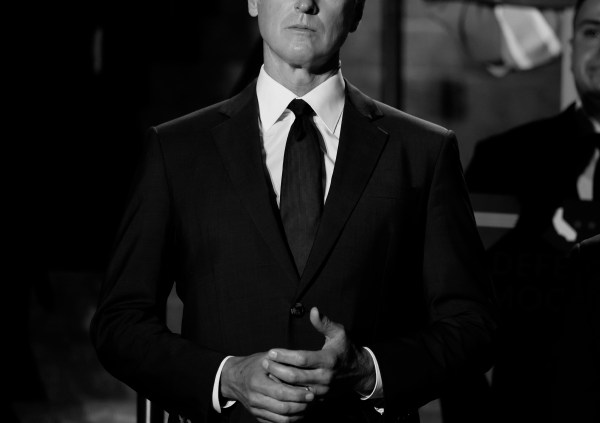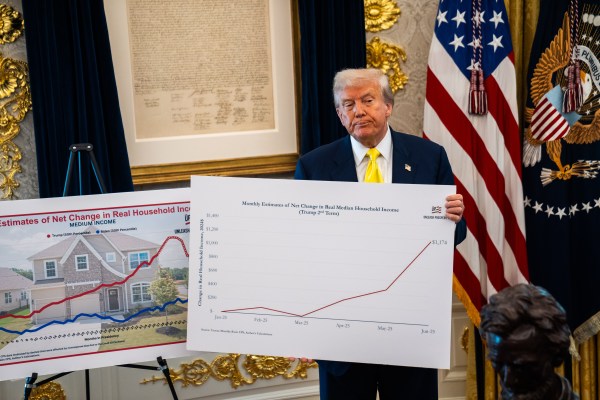One year ago, Russian President Vladimir Putin ignored the lessons of military history and labored under the false belief that a conquest of Ukraine would be quick and easy, a matter of taking an airport and rolling armored vehicles into Kyiv to accept its surrender. Today, his invasion of Ukraine has exposed the weakness of Russia’s military and the incompetence of its leadership, and the war grinds on in bloody fashion. The Ukrainians have shown they’ve learned from past mistakes, and they’ve remained united in defense of their country despite unrelenting attacks on civilians and infrastructure. This is a war Ukraine can win—provided the West maintains its support.
The signs were there from the beginning. The Russian army, acting as though it had no historical experience in winter warfare, struck during the Rasputitsa, a semiannual period of wet, above-freezing weather during which unpaved roads and the countryside turn into seas of mud. Rather than folding, the Ukrainian army and people fought back fiercely, denying Putin a rapid victory and devastating the largely unprepared Russian forces.
The Russian armed forces were thought to be among the most potent among the great powers, but Russian commanders could not execute combined arms operations (the synchronized use of infantry, armor, artillery, aviation, and other military branches to fight battles), could not keep their forces supplied, and failed to gain and maintain air superiority. They could not mass troops and equipment at the critical points on the battlefield, instead spreading their forces out along multiple avenues of approach under the assumption that the Ukrainian army would collapse under the weight of the assault.
It did not. Since the Russian seizure of the Crimean Peninsula in 2014, the Ukrainian armed forces, under the tutelage of Western military advisers, have created a corps of commissioned and noncommissioned officers who have exhibited competence and flexibility in battle. The ability of the Ukrainians to skillfully defend the approaches to Kyiv as opposed to Russian forces bogged down in a miles-long column with limited room or unwillingness to maneuver is a case in point
Leaders of the Russian army, by comparison, lack initiative and an ability to adapt on the battlefield. When events don’t go according to plan, they freeze and wait for orders, a route to certain defeat on the modern battlefield. Forces are poorly trained and inadequately supplied. Russian weapons and technology, once thought to be catching up to the standards of NATO, have proven poorly designed and constructed.
Russian leaders have resorted to stopgap measures to fill the ranks: relying on mercenaries from the Wagner Group, dragooning jailed convicts into the military, and mobilizing several hundred thousand untrained young men. But these measures are not substitutes for regularly constituted military forces; mercenaries dredged from the depths of Russian prison are unlikely to turn the tide of battle in Russia’s favor. Their poor discipline and morale have resulted in war crimes. Whether those offenses have been overlooked by senior officials or Putin just doesn’t care matters little–the result is the same. And Putin’s nuclear saber-rattling is a desperate gamble made necessary only because of the inability of Russian forces to fight effectively on the battlefield.
Since the Russian army stalled during the initial weeks of the invasion—its vehicles bogged down and its damaged and abandoned tanks hauled off by Ukrainian farmers—Putin and his generals have regrouped to focus on taking the remainder of the Donbas region in eastern Ukraine and retain their hold on the land bridge between that area and the Crimean Peninsula. Putin has also ordered a strategic bombing offensive targeting the Ukrainian electrical grid and other infrastructure. The Ukrainian people have suffered, but like Londoners before them, they have “kept calm and carried on.” An influx of Western anti-aircraft systems has enabled Ukraine to stave off the worst of the Russian attacks.
Ukrainian counteroffensives in the summer and fall regained territory north of Kyiv, east of Kharkiv, and west of the Dnipro River, including the city of Kherson. By contrast, a newly launched Russian offensive has sputtered, instead sacrificing thousands of poorly trained and motivated soldiers for scant gains.
Ukrainians have demonstrated unity and resolve and shown their willingness to sacrifice their lives to maintain their freedom. NATO countries have supplied tens of billions of dollars’ worth of advanced weaponry to Ukraine, including anti-tank and anti-aircraft missiles, artillery, ammunition, and most recently, tanks and infantry fighting vehicles. Ukraine needs the ability to conduct combined arms warfare to turn the fighting into a war of maneuver. This will advantage the side with better weapons and training, which is what Western support of the Ukrainian army will achieve provided it is sustained. With continued support the Ukrainians can regain their territory, protect their sovereignty, and reinforce the strength of international law. That will be a victory for all of us.






Please note that we at The Dispatch hold ourselves, our work, and our commenters to a higher standard than other places on the internet. We welcome comments that foster genuine debate or discussion—including comments critical of us or our work—but responses that include ad hominem attacks on fellow Dispatch members or are intended to stoke fear and anger may be moderated.
With your membership, you only have the ability to comment on The Morning Dispatch articles. Consider upgrading to join the conversation everywhere.